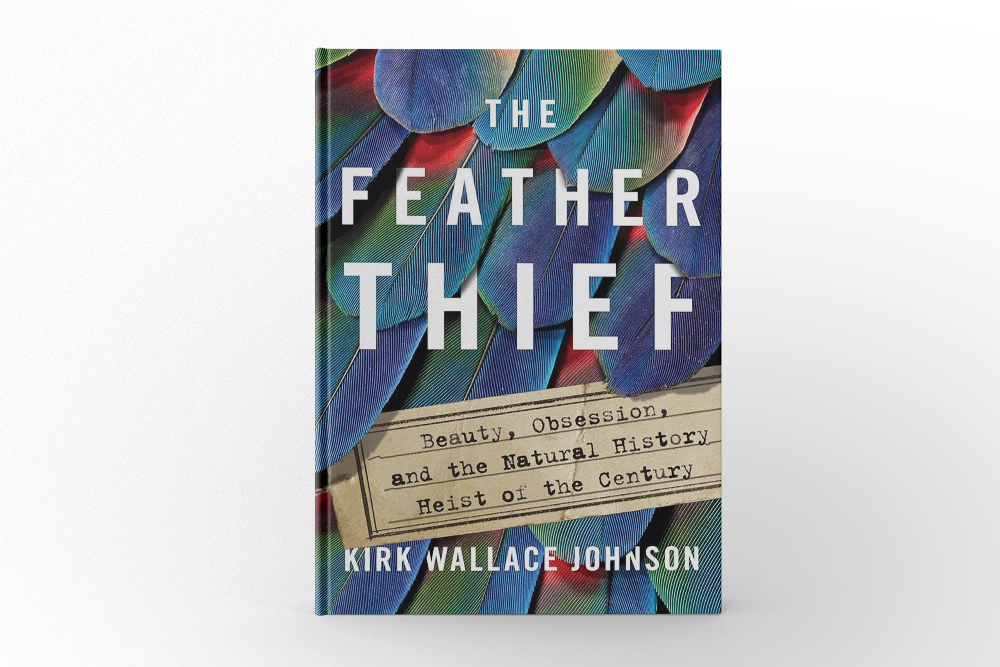The Feather Thief by Kirk Wallace Johnson is a captivating true crime narrative that dives into an extraordinary heist involving rare bird specimens. This article explores The Feather Thief by Kirk Wallace Johnson, unraveling its intriguing plot, delving into the background of its author, and examining the themes and insights it offers. Johnson’s meticulous research and engaging storytelling make this book a must-read for enthusiasts of true crime, natural history, and mystery.
Author’s Background
Kirk Wallace Johnson is a multifaceted writer with a background in international development and post-war reconstruction. Before turning to writing, Johnson worked for the U.S. Agency for International Development (USAID) in Iraq, where he coordinated reconstruction efforts and later founded The List Project to Resettle Iraqi Allies. His transition to the literary world brought forth a unique perspective, blending investigative journalism with compelling narratives. Johnson’s interest in The Feather Thief was sparked by his own fly-fishing hobby, leading him to uncover a bizarre and fascinating story.
In-Depth Summary
The Feather Thief by Kirk Wallace Johnson is structured into a well-crafted narrative that meticulously details the events leading up to and following the infamous heist. The book is divided into several sections, each offering a deeper understanding of the crime, its context, and its consequences.
Part One: The Heist
The story begins with Edwin Rist, a young American flautist and an avid fly-tier, who in 2009 executed a daring heist at the British Museum of Natural History’s Tring Museum. Rist’s obsession with Victorian-era salmon fly-tying drove him to steal hundreds of rare and valuable bird specimens, some of which were collected by Alfred Russel Wallace, a contemporary of Charles Darwin. Johnson paints a vivid picture of Rist’s meticulous planning and execution of the theft, capturing the audacity and precision of the crime.
Part Two: The Investigation
Following the heist, Johnson shifts focus to the investigation that ensued. The police and museum officials were initially baffled by the theft, as the stolen birds were not immediately recognized as valuable in a monetary sense. Johnson details the painstaking efforts of the authorities to track down the stolen specimens and identify the perpetrator. The narrative is filled with twists and turns, as investigators uncover the underground world of fly-tying enthusiasts and the black market for rare feathers.
Part Three: The Fallout
In the final sections, Johnson explores the broader implications of the heist. The stolen birds represented not only significant scientific value but also an irreplaceable part of natural history. The impact on the scientific community, the legal proceedings against Rist, and the attempts to recover and restore the stolen specimens are thoroughly examined. Johnson also delves into the ethical considerations of the crime, questioning the motivations behind such an unusual and audacious act.
Themes and Insights
The Feather Thief by Kirk Wallace Johnson delves into several profound themes. One of the primary themes is the intersection of obsession and crime. Edwin Rist’s fixation on fly-tying led him down a path of illegal activity, highlighting how a seemingly innocuous hobby can spiral into a criminal endeavor.
Another significant theme is the value of natural history and the importance of preservation. The stolen bird specimens were more than just feathers; they were invaluable pieces of scientific research and historical heritage. Johnson’s narrative underscores the need to protect and cherish our natural world, as well as the lengths to which some individuals will go to possess a piece of it.
The book also explores the concept of justice and its limitations. The legal proceedings against Rist, who ultimately received a lenient sentence due to his diagnosis of Asperger’s syndrome, raise questions about the adequacy of the justice system in dealing with such unique crimes. Johnson’s exploration of this theme invites readers to reflect on the complexities of crime and punishment.
Recommendation
The Feather Thief by Kirk Wallace Johnson is a compelling read for anyone interested in true crime, natural history, or the intricacies of human obsession. Johnson’s narrative skillfully weaves together the details of the heist, the investigation, and the broader implications of the crime, creating a story that is both informative and engaging.
For readers who appreciate meticulously researched non-fiction with a strong narrative drive, The Feather Thief offers a fascinating glimpse into a bizarre and little-known world. Johnson’s ability to humanize the characters involved and convey the significance of their actions makes this book a standout in the true crime genre.
Conclusion
In conclusion, The Feather Thief by Kirk Wallace Johnson is a masterful work of narrative non-fiction that sheds light on a unique and intriguing crime. Through its detailed recounting of the events and its focus on individual experiences, the book offers a profound exploration of obsession, the value of natural history, and the complexities of justice. For those seeking to understand the psychological and emotional dimensions of true crime, The Feather Thief is an indispensable resource.
Johnson’s meticulous research, combined with his ability to craft a compelling narrative, ensures that The Feather Thief is both an enlightening and moving read. As we reflect on the story of Edwin Rist and the stolen bird specimens, we are reminded of the enduring impact of crime on our society and the importance of preserving our natural heritage.
